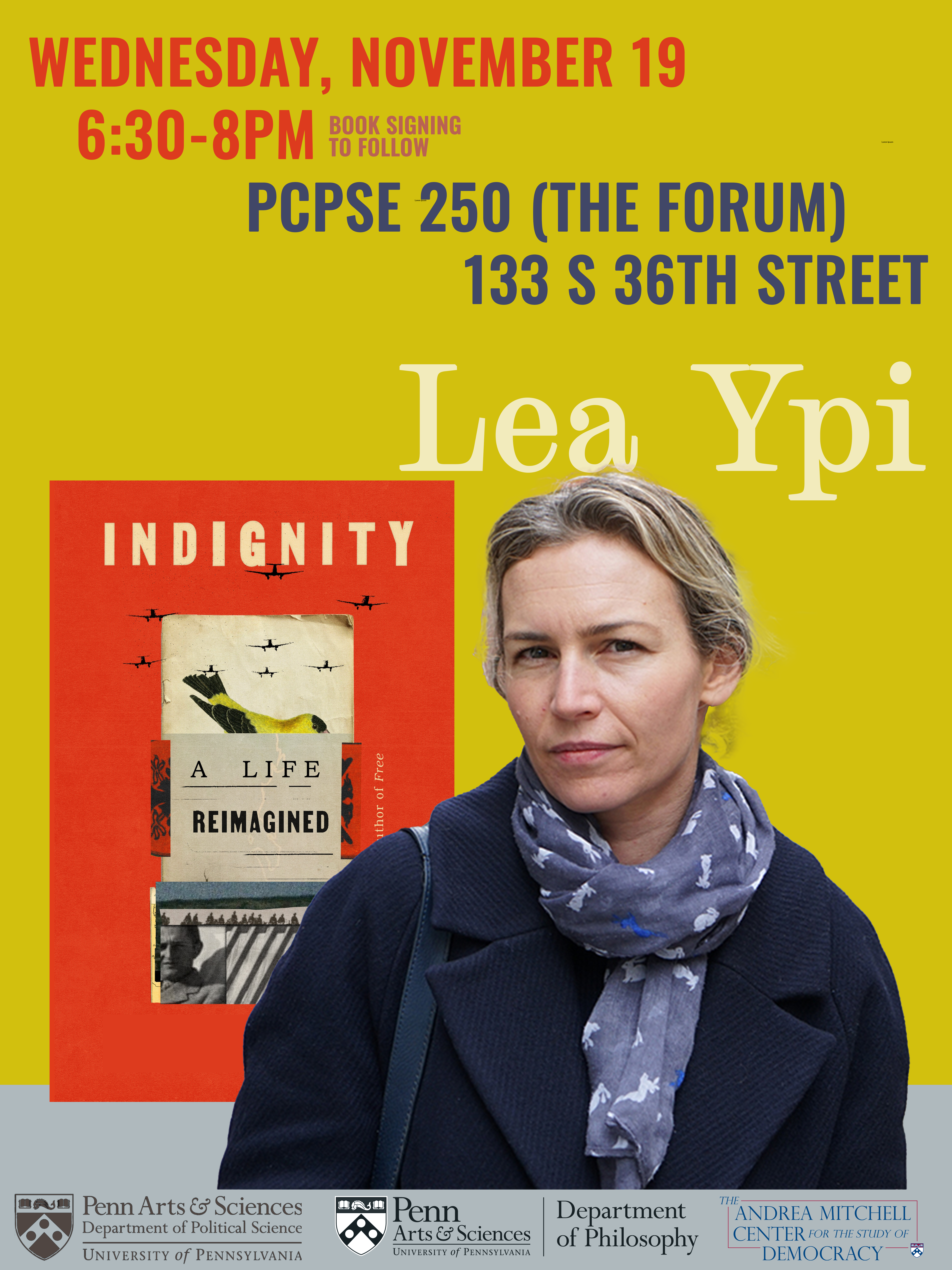PCPSE 250, The Forum

Please join us for a wide-ranging conversation on writing, history, and politics with political theorist and author Lea Ypi.
Indignity: A Conversation with Lea Ypi
Wednesday, November 19, 6:30-8pm | PCPSE 250, The Forum
Lea Ypi
Ralph Miliband Professor of Politics and Philosophy at the London School of Economics and Political Science and award-winning author
Ege Yumuşak
Assistant Professor, Department of Philosophy, University of Pennsylvania
Chris Chambers
Assistant Professor, of Political Theory, Department of Political Science, University of Pennsylvania
A book signing will follow the conversation and Q&A. Presented by the Department of Political Science, Department of Philosophy, and Andrea Mitchell Center for Democracy.
Author Bio
Lea Ypi is a professor of political theory at the London School of Economics and Political Science. A native of Albania and a prizewinning academic, she was named one of the most important thinkers in the world in 2022 by Prospect magazine. Her book Free: Coming of Age at the End of History was an international bestseller and won several prestigious prizes. She contributes regularly to The Guardian, New Statesman, and Financial Times.
More about Indignity
Indignity is a thrilling reimagining of the past, spanning the vanished world of Ottoman aristocracy, the making of modern Greece and Albania, a global financial crisis, and the horrors of war and the dawn of communism in the Balkans. While investigating the truth about her family, Ypi grapples with uncertainty. Who is the real Leman Ypi? What made her move to Tirana as a young woman and meet a socialist who sympathized with the Popular Front while his father led a collaborationist government? And, above all, why was she smiling in the winter of 1941?
By turns epic and intimate, profound and gripping, Indignity shows what it is like to make choices against the tide of history—and reveals the fragility of truth, collective and personal. Through secret police reports of communist spies, court depositions, and Ypi’s memories of her grandmother, we move between present and past, archive and imagination. With what moral authority do we judge the acts of previous generations? And what do we really know about the people closest to us?

 Department of Philosophy
Department of Philosophy